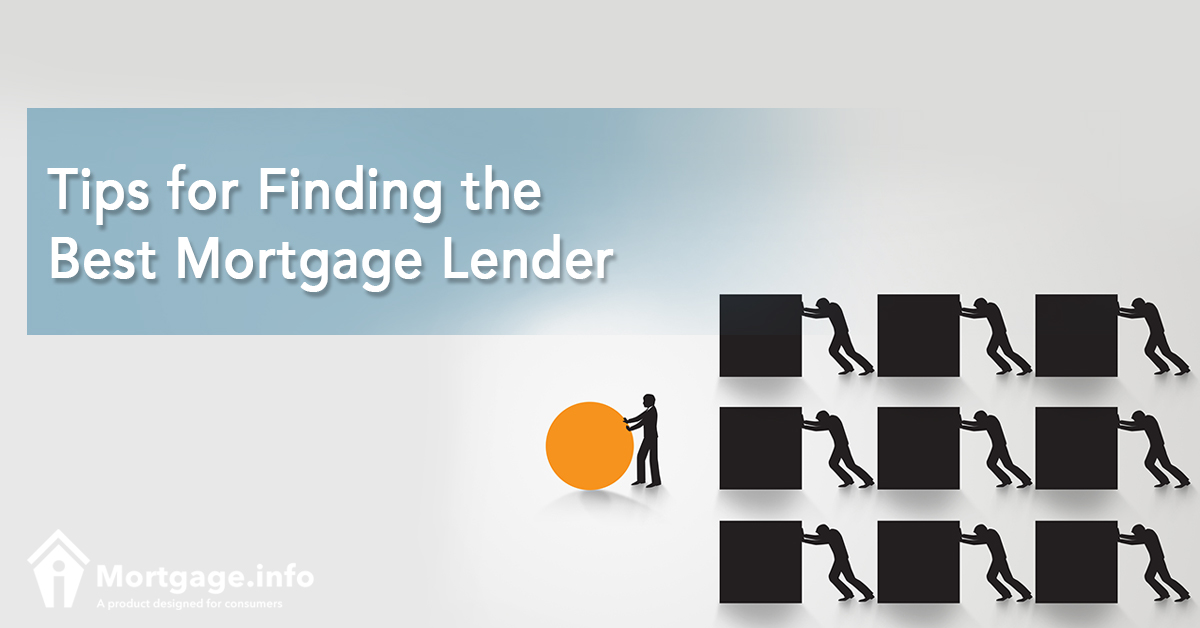
Shopping for a mortgage is no joke – you are talking about the next 15 to 30 years of your life and a whole lot of your money. Before you just jump in with the first lender you find, it is important to know how to find the lender that is right for you. Not ever company that offers mortgages has the same requirements, programs, and benefits to offer. Typically, it is recommended that you shop with at least 3 different lenders when you shop for a mortgage so that you know your options and can compare each program to see which would offer you the best deal in the long run. Here are a few things to look at when you start shopping for your mortgage lender.
Ask a Lot of Questions
Do not be afraid to ask questions of any lender you consider using – that is their job! You should treat it like an interview and talk to several lenders. Ask them specific questions, such as the following:
- What types of loan programs do you offer? (Not every lender offers the same programs)
- What is your turnaround time on the processing?
- Ask for explanations of any terms you do not understand.
- Ask about the servicing of your loan – will it stay with the lender or be sold to someone else?
- Ask about the general fees they charge.
- Ask specific questions about your circumstances, such as if you have a lower than normal credit score; have a bankruptcy in your past; or need to receive gift funds for a down payment to see how they would treat the circumstances.
- Ask about interest rate lock periods and the coinciding costs.
- Ask about appraisals and how they handle those that come in lower than expected.
- Ask about how the loan will affect your personal financial situation in the long-term.
Ask about Two Specific Fees
Once you have narrowed your choices down to 2 or 3 lenders, you should be concerned with two things:
- The interest rate you will be charged
- The points and closing costs you will be charged
These are the two best things to use for comparison purposes, so that you can determine which loan is right for you in the long run. Yes, there are other charges that occur on a loan, including taxes and insurance, but those charges will remain the same with most lenders, so you have to focus on the variable costs to see which serves you best in the future. You can start the comparison by determining how long you see yourself staying in the home. Of course, this could change several times, but right now, do you see yourself in the home for 5-10 years or maybe this is your forever home? The decision you make will impact which loan will be right for you.
- The person that plans on moving in the short-term, say 5-10 years might want to pay higher interest charges rather than paying the upfront points and origination fees. This is because it will likely take many years to break even on those charges and if the borrower does not see himself staying in the home long enough to pay off those fees, it doesn’t make sense to pay them just to get the interest rate down.
- The person that is planning his forever home, however, might want to pay those fees or at least compare them to the loans that do not have fees to see how much the interest would differ over the life of the loan. In many instances, it pays to choose the upfront costs and take the lower interest rate.
Ask for Proof
Never agree to work with any lender until you have the Good Faith Estimate and Truth-in-Lending in your hands. The loan officer can talk a good talk, but until the plan is in writing, you will not be able to know for sure what you are getting yourself into. With the Good Faith Estimate and Truth-in-Lending in your hands, you can compare apples to apples, so to speak. This paperwork will detail all of the costs going into your loan as well as the APR, so that you can see what the loan really costs you. Now you will have a better idea of what the loan officer was talking about and can determine how it will impact you financially.
Think about the Level of Customer Service you Desire
Last, but not least, is the type of customer service you desire. Do you want a lender that offers personalized service or one that treats you like a number and deals mostly with computerized programs? This can make a big difference in the loan process. If you are looking for personalized service, you likely want to go with smaller lenders that offer portfolio lending and more abstract loan programs. If you have a straightforward financial situations with no hiccups and you will qualify for low-priced conventional financing, you can opt for the bigger lenders with less personalized service. The choice is up to you as it really depends on your personality as well as your financial situation.
The good news is that there are hundreds of lenders out there that would love your business, so you have ample opportunity to find one that works for you. The key is not to settle for the first lender you find – do your window shopping and your homework. You need to find out which lender will provide you with the knowledge and service you need as well as the lowest costs in the long run. Do not just determine what the loan will cost you now, but well into the future, as that is the only way to truly determine not only which loan, but which mortgage lender is right for you.
